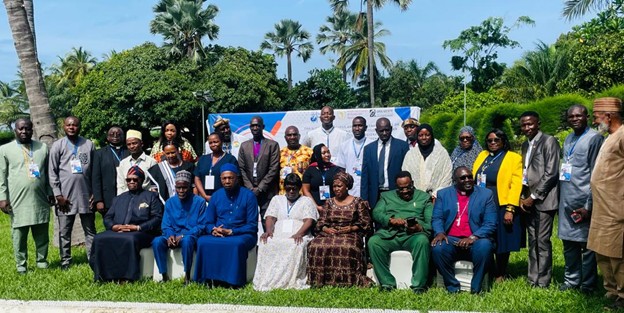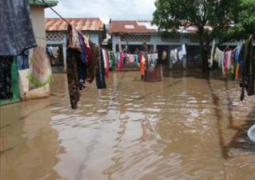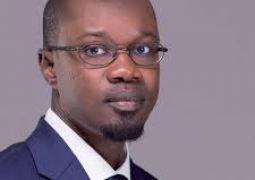
The three-day seminar expected to end today, Thursday 16 October 2025, was held at the Kairaba Beach Hotel, Banjul.
The convergence brought together religious and traditional leaders from different African countries, including Cameroon, Nigeria, South Africa, Republic of Guinea and Senegal among others.
The seminar was themed: ‘From Tradition to Transformation: Empowering Religious and Traditional Leaders in Africa for the Consolidation of Democracy, Rule of Law, and Human Rights’.
The consultation and training aims to enhance understanding of participants on the challenges posed by conflicts, military coups, SGBV, and human rights violations.
Participants are expected to develop actionable strategies and commitments for religious and traditional leaders to implement within their communities and strengthen the network of religious and traditional leaders advocating for democracy, rule of law, and human rights across Africa.
In his statement, Hamat N.K. Bah, minister of Local Government, Lands and Religious Affairs, described the seminar as “of immense significance for the African continent,” noting that the training represents a thoughtful and progressive step towards a meaningful dialogue and understanding.
He added that the consultation would not only bring together religious and traditional leaders from across Africa for invaluable networking opportunities, but it also reinforces the critical link between governance, tradition, and human rights.
“By participating in these deliberations, you are reinforcing your critical role in advancing human rights and democracy on the continent. The government views your enhanced engagement with these mechanisms as fundamental to ensuring that human rights values are not merely respected, but actively advanced,” he revealed.
Hamat Bah advanced that the core objective of the training is deeply aligned with The Gambia's commitment to institutional strength and democratic consolidation which he said has always been President Adama Barrow's desire to build a society based on mutual respect that values human dignity and respect for diversity.
“We must acknowledge the unique position that religious and traditional leaders hold in society. Indeed, they are not only the custodians of our values, the voice of our communities, but also the stewards of human rights,” he said.
“Their insights and influence are invaluable in fostering dialogue, promoting understanding, and driving the collective action needed to uphold the rights and dignity of every individual,” he continued.
Cherno Mamoudu Jallow, vice chairman of the Independent Electoral Commission (IEC), acknowledged that religious and traditional rulers have a role in shaping public opinions and promoting virtues of peace, tolerance and inclusivity.
Speaking on behalf of the Chief Justice, Aisatou Jallow-Sey, a high court judge acknowledged the significant role that these leaders have in bridging divides, inspiring collective action and supporting sustainable peace building efforts.
She stated that the training would need the establishment of network of religious and traditional leaders’ committees on human rights with clear areas of intervention and identification of the mechanisms required to facilitate the work.
These, she said will include capacity building, legal reform, documentation and research, partnerships and dialogue.
Dr. Nana K.A. Busia Jr. Assistant Professor/Research Fellow Public International Law member University of London, who serves as the lead facilitator, revealed that the workshop seeks to look at how religious and traditional leaders will protect rights, noting that it is about time Africa revisits its governance systems which has at its center, traditional rulers. “This discussion now is about revisitation of who we are, the African person,” he said.



